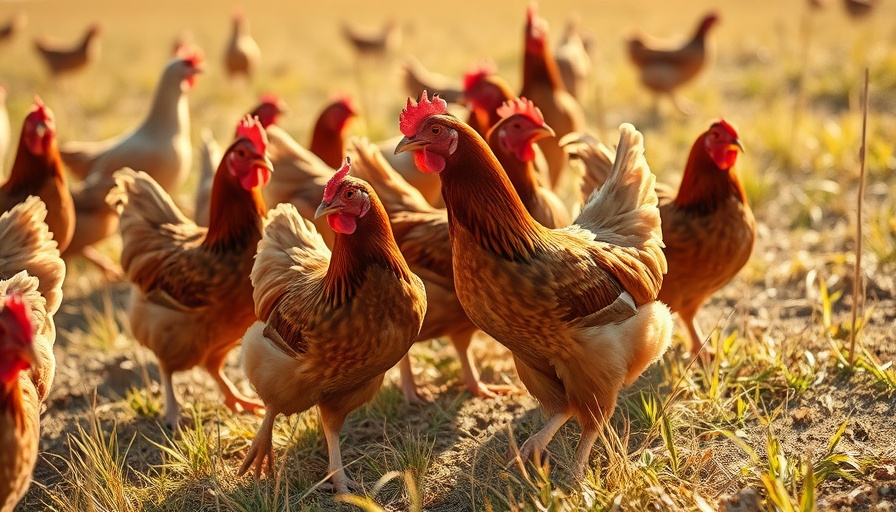
Understanding Avian Influenza: A Growing Concern
For poultry professionals, avian influenza (AI) is more than just a virus; it's a looming threat that affects their livelihoods. As Richard Turner, a seasoned vet, reflects on past experiences with AI, he emphasizes the unique challenges faced by the industry. Particularly notable was the paradox during the height of COVID-19; despite fears of AI spiraling out of control, poultry product sales remained stable, prompting questions about consumer perception and the actual impacts of AI on production.
The Importance of Biosecurity
The return of migratory birds increases the risk of AI, thus making biosecurity measures crucial. Many poultry managers wonder about the effectiveness of existing protocols, especially following incidents where wild birds were linked to outbreaks. Turner underscores that complacency is dangerous; being proactive means considering how outdoor activities, like game bird shooting, can inadvertently spread the virus. It’s vital for producers to evaluate their practices rigorously to mitigate these risks.
Adapting to Regulatory Changes
In managing AI, regulatory frameworks also underwent significant adjustment in response to evolving challenges. Turner notes that while the pressures of compliance can feel burdensome, they have invariably led to a more informed industry. Better understanding of AI's epidemiology has fostered smoother operational systems, which ultimately benefits both poultry owners and consumers.
Looking Ahead: A Call for Vigilance
As the poultry season rolls in, the animal husbandry community must remember the lessons learned. With increased bird movements during hunting seasons, a renewed focus on transportation biosecurity could prove vital. After a quiet period, the memory of AI’s impact must remain fresh in the minds of poultry professionals. Future vigilance and adherence to best practices can help ensure the health of both flocks and farm profits.
Conclusion: The Need for Preparedness
With environments changing and regulatory landscapes shifting, poultry managers need to be more prepared than ever. By staying informed and adapting to both scientific insights and regulatory requirements, they can safeguard their operations against avian influenza. It's not just about maintaining production; it's also about protecting their future in a constantly evolving industry.
 Add Row
Add Row  Add Element
Add Element 



 Add Row
Add Row  Add
Add 
Write A Comment